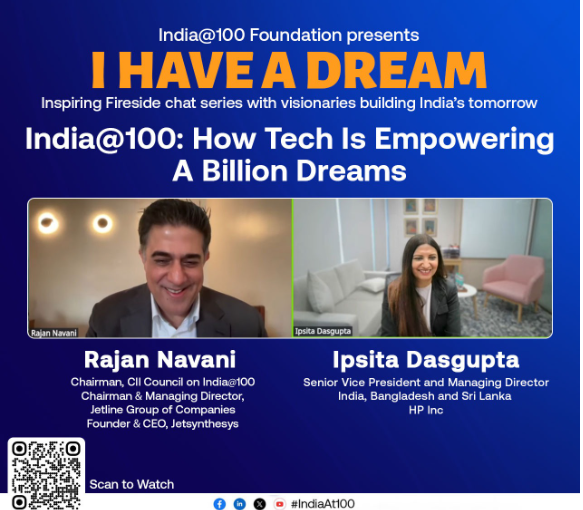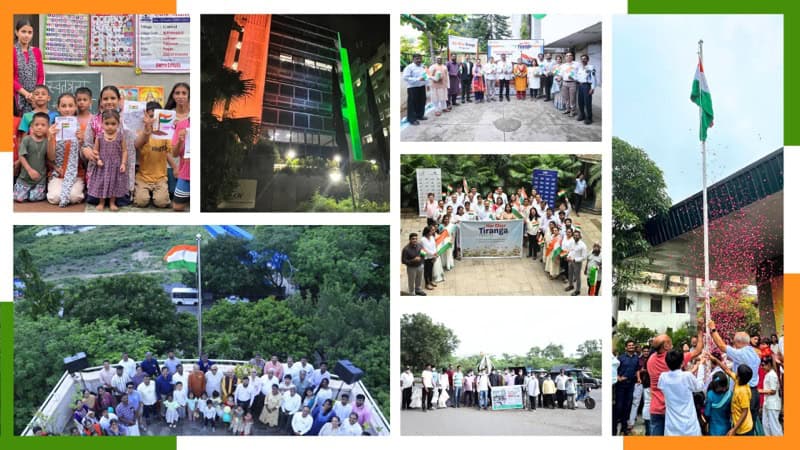Last year in May, when Covid-19 pandemic disturbed everything in life, the Prime Minister Shri Narendra Modi asked the officials to explore how volunteers from civil society could be utilised to lessen the pressure on healthcare sector by invoking them in non-specialized tasks. The statement then issued by the Prime Minister Office said that NGOs could help to establish and maintain lines of communication between the patients, their dependents & health care personnel. The statement also sought to encourage the ex-servicemen to handle call centers for communicating with people under home quarantine. These words from the top echelon enthused organisations, institutions and individuals and they jumped to save, serve, and support the pandemic victims voluntarily. But volunteering is not just about saving, serving, or supporting people in crisis, disasters, and pandemic. It is an affirmative action of the individuals and institutions for achieving something better addressing needs, gaps and vulnerabilities.
Volunteering is about improving lives, strengthening communities, and foster civic engagement through self-less service, service without any tangible or intangible benefits. It is the self-consciousness of an individual, institution or collective affirmation of individuals putting one’s values into action to make a difference, where the need is the greatest, divides are sharper, and demands are actual. In each setup, volunteering serve people, communities and nature with compassion, creativity, and determination.
Volunteering has been in existence in India and overseas since time immemorial. Most countries have established mechanisms that preserve, promote, and encourage volunteerism. United Nation Volunteer under the aegis of United Nations, provides cross-country volunteering opportunities to learn, share and contribute. Government of India formally institutionalised volunteerism among students through National Social Service Schemes in colleges and universities, while Nehru Yuvak Kendra Sangathan fosters volunteerism among the rural youth. Confederation of Indian Industries has set up a National Volunteering Grid promoting volunteer action among the corporate citizens. Most of the non-profit, like National Confederation of Dalit and Adivasi Organisations (NACDAOR) largely rely on large mass base of volunteer for their meaningful ends.
Thus, volunteerism is an essential ingredient in the life of an individual, institution and the nation. It brings people together to serve communities when country faces profound and enduring challenges such as COVID-19 to help the country and people to overcome such challenge. Individuals or Institutions working voluntarily unites India through their collective resolve, spirit, and actions the betterment of every community.
Founded on the principles of peoples’ sovereignty, modern India resolved to secure to all its citizens – Justice, social, economic, and political; Liberty of thought, expression,
belief, faith, and worship; Equality of status, and of opportunity and to promote among them all; Fraternity assuring the dignity of the individual and the unity and integrity of the nation. This is the preamble of the India’s constitution. In my view, this preamble gives us purpose and a vision for the Indian volunteerism. Keeping preamble in perspective, every Indian can help to fulfil the promise, that India made 75 years ago at the dawn of its independence in 1947.
As mentioned earlier, volunteerism does not necessarily serve in the times of adversity or in crisis. It provides a meaning to the life of an individual, a soulful purpose striving for a meaningful change in society. Volunteer provides educational support to the weaker, needy, and vulnerable groups. They invest their time, talent, and mobilise resources for such as students to help them to realise their educational potential. This reduces dropping out of vulnerable children and reduce delinquency and crimes in future. Delhi Government’s mentorship program is an excellent example how volunteerism can help the students to overcome their handicaps with the help of volunteer mentors.
An important area of volunteer intervention is economic sustainability. Volunteers help needy to provide resources, guidance, equipping them with skills, and support to find better economic opportunities and employment. Program such as Functional Literacy Program by the India@75 financial literacy training and hence enable needy, illiterate, and semi-literates to find and connect with better economic opportunities.
Many volunteers work to help to conserve and improve natural habitat, well-being of wildlife and flora and fauna spread across the length and the breadth of India. Many volunteers in India work on water, sanitation, and clean air. They run campaigns, provide important solutions and addresses environment vulnerabilities.
As Omicron variant of COVID-19 pandemic threatens health and well-being of every Indian, many volunteers will be out to provide supplies, vaccination and other medical support to the Corona victims and their families, as they did in 2020 and 2021. Many volunteers help poor and needy financially.
In essence, volunteerism is altruistic and strengthen the moral fabric through individual or collective action, and volunteers serve with compassion, creativity, and determination. Everyone is a volunteer in one’s life knowingly or unknowingly.
Author: Ashok Bharti, Chairman, National Confederation of Dalit and Adivasi Organisations (NACDAOR)





